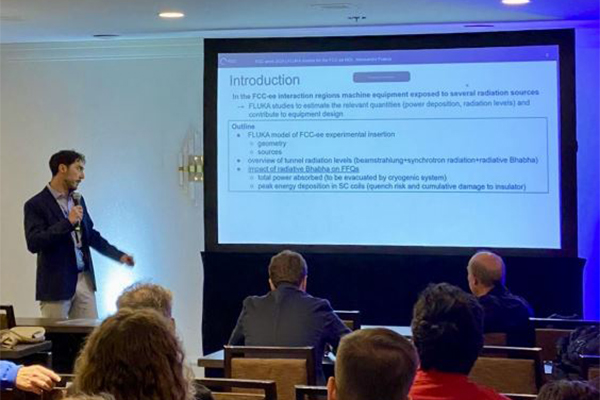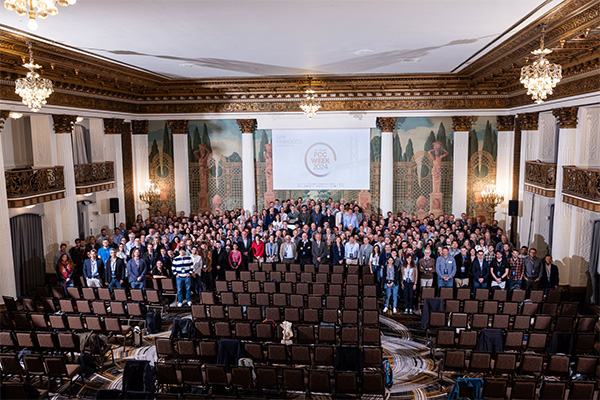Alessandro Frasca Presents Radiation Studies at FCC Week 2024 in San Francisco

Given his radiation studies for the FCC-ee experimental insertions on FLUKA, QUASAR member Alessandro Frasca was invited to present a talk at the FCC Week 2024. The pivotal annual conference focused on the Future Circular Collider (FCC) project, took place in San Francisco from June 10 to 14. This event gathered both leading experts and early-career researchers to discuss critical aspects of the integrated project (FCC-ee and FCC-hh), including civil engineering, infrastructure, physics, experiments and detectors (PED), accelerator physics and machine-detector interface (MDI).
This year the conference was particularly significant as it marked the final gathering before the delivery of the FCC feasibility study foreseen in early 2025. During the five-day conference, attendees presented the latest outcomes of their research in a series of parallel sessions, where they could engage in in-depth discussions aimed at advancing the development of project. The event served as a platform for collaboration, knowledge exchange, and the exploration of innovative solutions to the challenges faced in the ambitious FCC project.

Group photograph of FCC Week 2024 participants. (Image copyright FCC study)
Alessandro presented a talk titled "Radiation Dose from FLUKA Simulation in the MDI Area", during an MDI session. In the presentation, he first provided an overview of the radiation dose in the tunnel around the interaction point (IP), generated by several radiation sources included in the simulation model: beamstrahlung radiation, synchrotron radiation, and radiative Bhabha. He then focused on the impact of radiative Bhabha electrons on final focus quadrupoles. These off-momentum electrons, with GeV-level energy, are lost in the final focus and risk compromising the performance of the superconducting quadrupoles through quenching and their lifetime due to cumulative radiation damage. To raise awareness of this potential issue, Alessandro presented an estimate of the power density deposition and annual dose inside the quadrupole coils and proposed a possible solution through a layer of tungsten shielding, which would directly impact the design of these magnets.
The conference provided valuable insights into FCC’ progress, current achievements, addressed existing challenges, and explored the strategic roadmap for upcoming phases.
Alessandro said: "I think that the awareness of contributing to such an ambitious project, aimed at changing the history of particle physics, is the greatest motivation a scientist can have."
Further information:
'Radiation Dose from FLUKA Simulation in the MDI Area', Alessandro Frasca, Kevin André, Manuela Boscolo, Helmut Burkhardt, Daniele Calzolari, Andrea Ciarma, Barbara Humann, Anton Lechner, Giuseppe Lerner, FCC week 2024, 12 June 2024